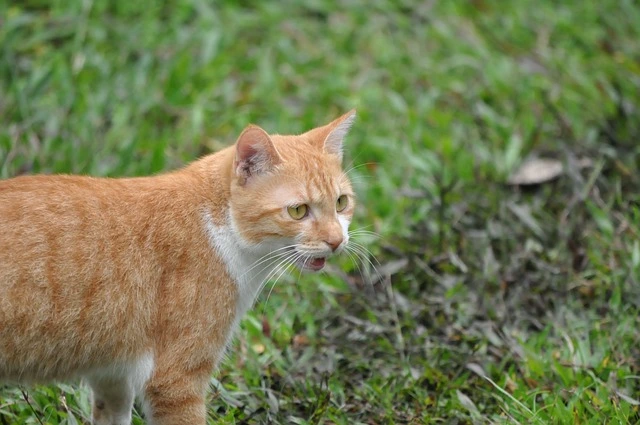Can Cats Eat Cheese?

You're enjoying a lovely cheese platter, and your feline friend saunters over, eyeing your snack with intense curiosity. Those big, pleading eyes seem to say, "Can I have some too?" As a cat owner, you've probably wondered, "Is it okay to share a little nibble of cheese with my kitty?"
Feline Digestive System and Lactose
To understand whether cats can eat cheese, we must first consider their digestive system:
- Cats are obligate carnivores, meaning their bodies are designed to digest and utilize animal-based proteins efficiently.
- Most adult cats are lactose intolerant due to the lack of sufficient lactase enzyme production after weaning.
Lactose, the primary sugar in milk and dairy products, requires the enzyme lactase for proper digestion. As cats mature, their ability to produce lactase diminishes, leading to potential digestive issues when consuming dairy products, including many types of cheese.
Cheese Composition and Feline Nutrition
Cheese contains several nutrients:
- Proteins
- Fats
- Calcium
- Phosphorus
- Vitamins (A, B12, K2)
While some of these nutrients are beneficial for cats, cheese is not a natural or necessary part of their diet. Cats obtain these nutrients more efficiently from meat-based sources.
Can Cats Eat Cheese?
The short answer is: yes, cats can eat small amounts of certain types of cheese, but it is not recommended as a regular part of their diet.
- Lactose Intolerance: Most adult cats cannot digest lactose properly, which may lead to gastrointestinal issues
such as:
- Diarrhea
- Vomiting
- Abdominal pain
- Flatulence
- High Fat Content: Many cheeses are high in fat, which can contribute to:
- Obesity
- Pancreatitis (in severe cases)
- Salt Content: Some cheeses contain high levels of sodium, which is not ideal for cats, especially those with heart or kidney conditions.
- Additives and Flavorings: Certain cheese products may contain ingredients harmful to cats, such as garlic or onion powder.

Cheese Options for Cats
If you decide to offer cheese to your cat, consider the following:
- Low-Lactose Cheeses: Some cheeses have lower lactose content and may be better tolerated:
- Hard, aged cheeses (e.g., cheddar, Swiss, Parmesan)
- Cottage cheese (in small amounts)
- Portion Control: Offer only tiny amounts as an occasional treat, not as a regular part of the diet.
- Monitor for Adverse Reactions: Observe your cat for any signs of digestive distress after consuming cheese.
Should Cat Owners Feed Cheese to Their Pets?
While small amounts of certain cheeses may not be harmful to some cats, it is generally not recommended to intentionally feed cheese to cats for the following reasons:
- Nutritional Imbalance: Cheese does not provide essential nutrients that cats cannot obtain from their regular, balanced diet.
- Risk of Digestive Issues: The potential for gastrointestinal discomfort outweighs any minor benefits.
- Calorie Dense: Cheese can contribute to weight gain if fed regularly.
- Preference Formation: Offering human foods may encourage begging behavior and make cats less interested in their regular, nutritionally complete diet.
Conclusion
While cats can eat small amounts of certain cheeses without immediate harm, it is not a recommended practice. Cat owners should focus on providing a balanced, species-appropriate diet formulated specifically for cats. If you choose to offer cheese as an occasional treat, do so sparingly and with careful monitoring. Always consult with your veterinarian about your cat's specific dietary needs and any concerns regarding human food consumption.